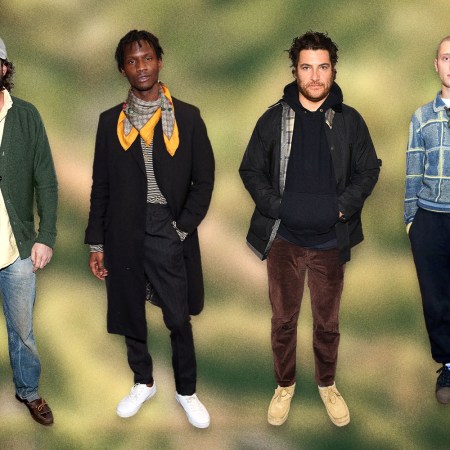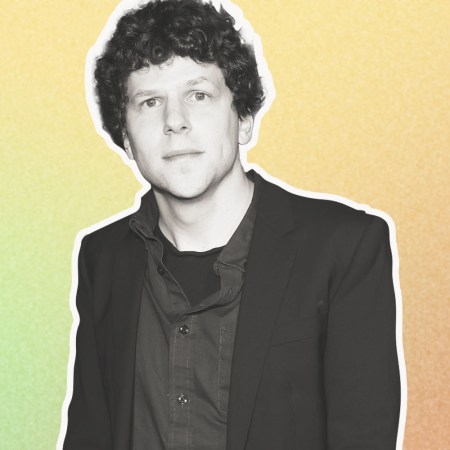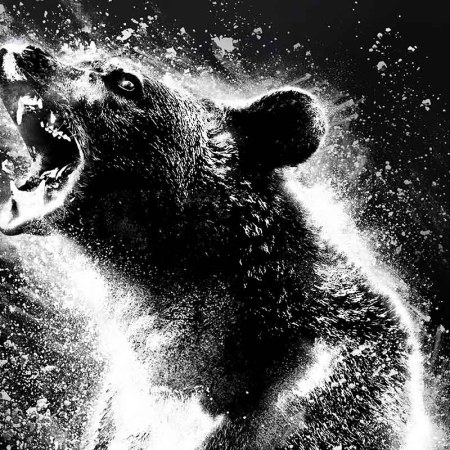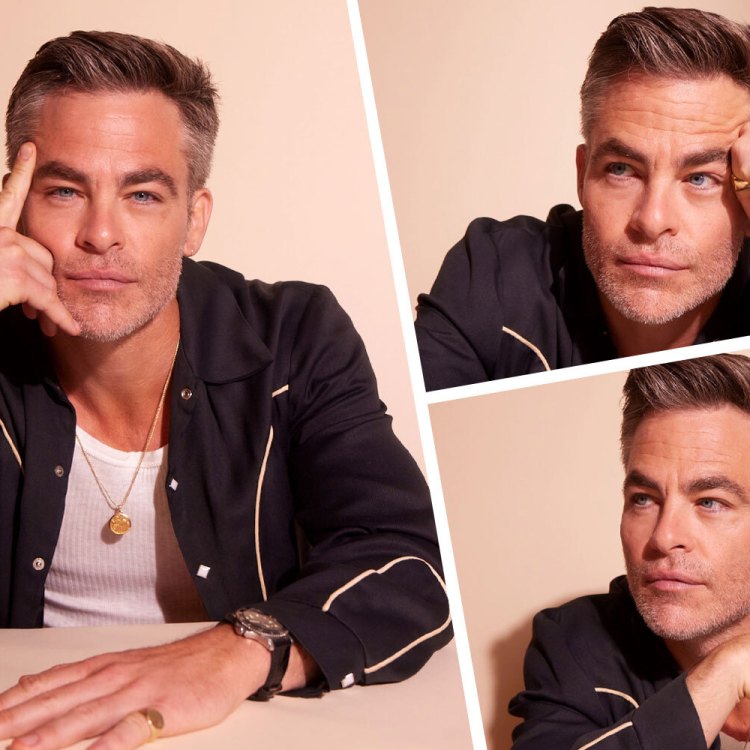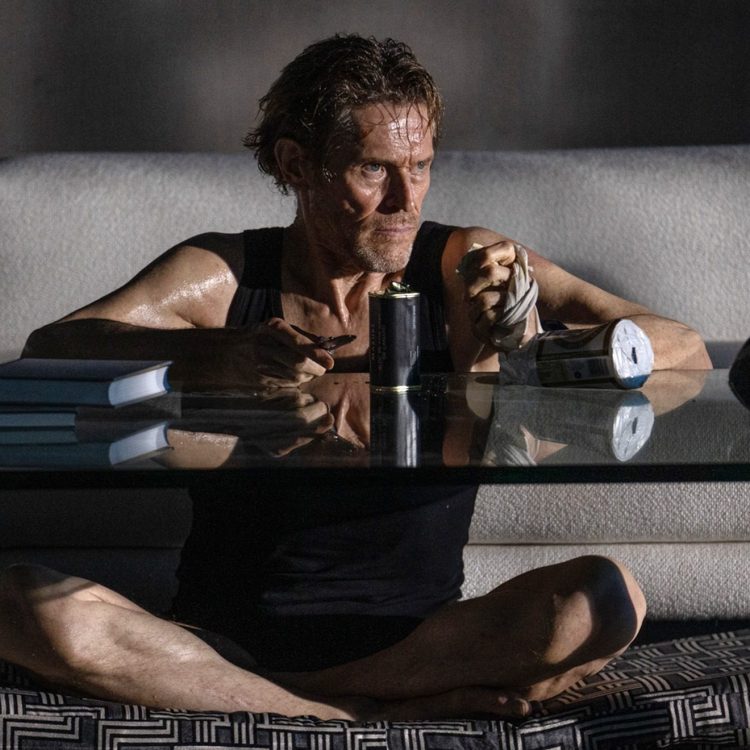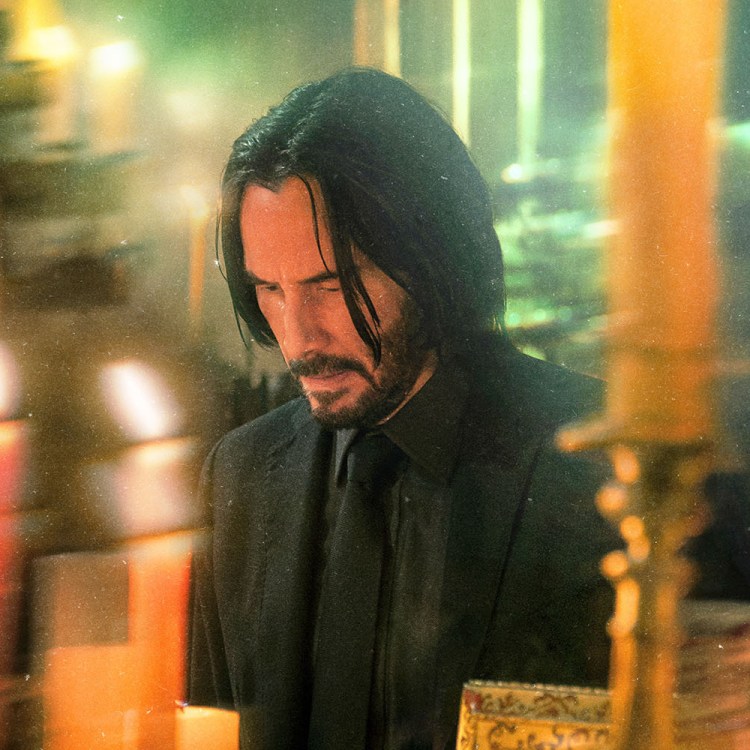At first glance, Who Invited Charlie? is a classic odd-couple comedy: A tightly wound hedge fund manager (played by Veep‘s Reid Scott) reluctantly allows the goofy stoner buddy he’d previously lost touch with (Adam Pally) to quarantine with his family in the Hamptons during the early days of the COVID-19 pandemic. Personalities clash, and hijinks ensue. But as the movie (which hits theaters in select cities today and is also currently available on demand) unfolds, some dark secrets come to light, and we get flashes of the lockdown-era emotions that we all are painfully familiar with — boredom, grief, loneliness and fear.
To be clear, you will laugh, the same way you surely did watching Pally on shows like Happy Endings or The Mindy Project. But Who Invited Charlie? is also surprisingly moving depiction of a time when we were all spraying our mail with Lysol, hoarding toilet paper and poking our heads out of our windows at 7 p.m. every night to clap for healthcare workers and remind each other that we were still there.
Our priorities shifted in 2020. Now that the world has opened back up, we’ve got a newfound appreciation for life’s simple pleasures — like, say, a weekend getaway spent eating and drinking your way through a new city with someone you love. Pally got to do plenty of that on 101 Places to Party Before You Die, the travel series he hosts with his best friend and fellow comedian Jon Gabrus.
We caught up with the actor via Zoom this week to find out about the future of that show, the catharsis of filming Who Invited Charlie? and why nothing beats collaborating with your friends. Check out the conversation below.
InsideHook: Tell me a little bit about what drew you to this movie. Like, what made you say, “Yes, this is something I wanna be a part of”?
Adam Pally: I was prepping another movie at the time with the producer of this movie, David Frankel, who is a great writer and director himself. And then the pandemic hit, and that movie kind of went away. And I was in a physical shape that reminded him of a character of a movie he was producing, so he called me and sent me the script for Charlie, and I read it and instantly loved it and related to a lot of it. Sometimes, you read something and there’s a million red flags about the subject or what it is, and there are a million people saying, “No one wants to see stuff about the pandemic” and blah, blah, blah. And it’s just like, “Well, the story is really good, and the writing and direction is really good, so I don’t care.” And I turned out to be right, which is nice. At least to me. I mean, we’ll see how much money it makes, but quality-wise, it turned out to be good, which is all you really want.
How far into the pandemic — or post-pandemic, even — did you guys film this?
Is it post-pandemic?
You’re right, I guess we’re not post-pandemic.
Are we post-pandemic? Because like, I don’t have COVID, but I can’t 100% say that I don’t don’t have COVID. [laughs]
Right, exactly.
I don’t know if it’s post-pandemic. We shot it pretty much at the height of the second wave, which made a lot of things pretty easy to slide back into.
Yeah, how did it feel to go back and revisit that early-pandemic stage?
It actually felt cathartic in a way, which I think is one of the nice things about watching the movie, too, now. It is like you look back on that time and you feel so naïve. You’re like, “I was washing my berries, I was making people stand far away from me.” I think what this movie does is it looks at it with no judgment, and it just is like, “This is the way that we all acted.” And I think that is a very human way to write and look at it and also really funny. And instead of feeling, “Oh, what an idiot I was,” you feel like, “Remember…” You almost feel nostalgic for us all being uninformed.
That was one of the things that I really loved about the movie. There were scenes sprinkled in throughout where I was like, “Oh man, that feels like it was 10 years ago, when we were banging on pots and pans.” And then there I am crying over the banging on pots and pans scene. It just brought it all back real quick.
Yeah, and I like that. I think that people sometimes, I think especially in my industry, are like, “We don’t wanna deal with it, we don’t wanna deal with it. We’ll pretend that it didn’t happen.” You know, where it’s like, “Well, okay. I don’t think that worked great in the past for history stuff.” I think we should understand it and look to see if there’s any art that comes from it.
What was the amount of ad-libbing that you guys were doing on this? Did you stick pretty much to the script, or were you allowed to play around?
No, we stuck to the script. But Reid and I have worked together a bunch and both come from an improvising background. Reid and I speak a specific language about when a scene can go and when it can’t. But for the most part, we stayed on script, because you can’t really improvise in an independent film. It’s like you don’t have time. You’re doing like 11 scenes a day. You don’t have time to sit around and be like, “You know what would be funny?” You get one take, and you gotta do it well.
Where Have All the Big-Screen Comedies Gone?
On “Shotgun Wedding,” “You People” and a movie genre unfairly relegated to streamingWell, you have this movie, and then you also have 101 Places to Party Before You Die, which is great.
Thank you.
Have you heard anything about whether you guys are gonna get to do a second season of it?
We haven’t heard anything. Right now we’re stuck in the HBO-Discovery merger, whatever that is. We’ve called the building, but there doesn’t seem to be anybody that works there right now. [laughs] So we’re just kind of waiting until someone works there and starts reviewing the shows that HBO has, and then we’ll find out. Something about this show, I don’t know if it’s that this show is so warm, or fun, or enjoyable for people to watch, but I think we’ll do more. With no reason for me to say that, I think we’ll do more.
Well, the movie is obviously set in the early days of quarantine, and then in a way, the show feels like this perfect complement to it. It’s capturing you guys coming out of that, and it’s just this really joyful return to all the things we missed during that time. Just you guys hanging out and getting back to life.
Yeah, yeah. A little thing we say it a couple times in the show, “Life is short and so you gotta take the opportunity to blow it out.”
Yeah, absolutely. When you were filming that, did you have a favorite spot or favorite moment that really stood out to you?
Every moment was amazing, ’cause you’re shooting a TV show and getting paid to do it with your best friend. It’s so fun. And every city was great. I love Miami, because it’s like birthright for me, like as a kind of schmoozy Jew, that’s eventually where I will go to die, so I had a good time coming to grips with my fate in Miami, kind of learning where I’ll be in a couple of years. It was nice.
[laughs] A little taste of what’s to come.
Yeah, I was like, “Oh I see how I like this. Tax-free, playing pickleball. I get it.”
You mentioned working with your best friend, and even working with Reid a lot in stuff, too, how important is it to you to work with people that you get along with and like? And how does that impact the work, do you think?
Well, I think that it impacts the work, and it impacts your life. I think they’re connected in a lot of ways. And I came up in comedy at a time when improv and sketch were really popular. And so what improv and sketch do is they… It focuses on the ensemble and less on the person. So in that, what I found was there are certain people that I enjoy being in an ensemble with. They make me better, and I feel like they feel the same about me, so I try to bring them everywhere. And I think if you look at my work, there’s a lot of return guests, and I keep doing it. I’m working with David Caspe again, this will be the third time, and I hope to work with him forever. And same with Casey Wilson and the people that I came up with. I love new people, but there’s something really gratifying about having a relationship that you’ve seen go through a bunch of iterations and then working together. It’s really fun.
This article was featured in the InsideHook newsletter. Sign up now.


